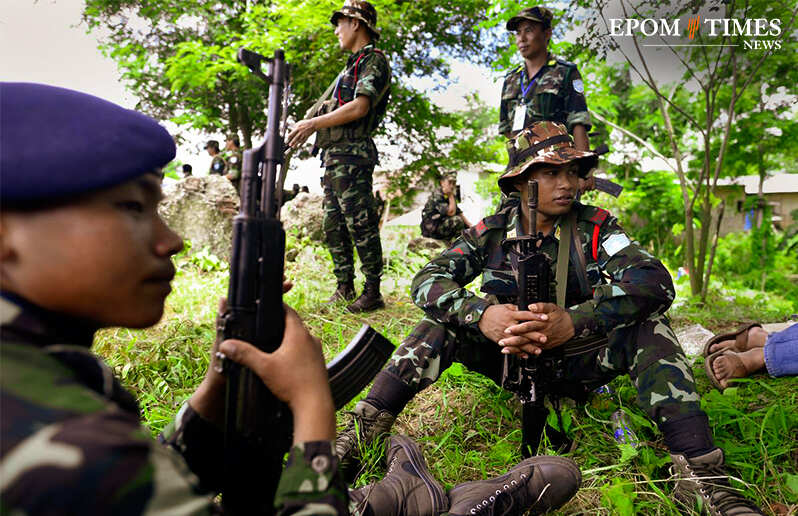In a statement released Thursday, the National Socialist Council of Nagaland (Isak-Muivah) alleged that Assam Rifles and the para-regiment are actively collaborating with Kuki militant groups, creating a tense, war-like situation in the border areas between India and Myanmar.
The NSCN (I-M) claimed that this level of conflict has not been seen in recent history, despite the area’s vulnerability to various militant infiltrations, according to a report by the Ukhrul Times.
The Kuki National Army (KNA) and Kuki National Army (KNA-B) have denied any involvement with Indian security forces. However, the NSCN (I-M) insists that the KNA (B) enjoys unrestricted access to Myanmar, a privilege denied to others.
The group further criticized the role of Indian security forces, accusing them of exacerbating the problem instead of finding a solution. They pointed out that the Ministry of Home Affairs had scrapped the Free Movement Regime to control border crossings, yet Kuki militants reportedly continue to move freely.
NSCN (I-M) questioned the Indian government’s use of KNA (B) and the People’s Defence Force (PDF) to wage a proxy war against them. The group highlighted recent conflicts in Manipur, marked by violent clashes between Meiteis and Kuki-Zo communities, resulting in significant casualties.
The statement alleged that combined forces of KNA (B) and PDF, with logistical support from Indian security forces, have targeted Naga Army camps in Myanmar.
On May 11, 2024, KNA (B) reportedly captured 2nd Lieutenant Hante Ao of the Naga Army, who was killed on May 13 after severe torture. Another officer, Lieutenant Colonel Yaoreichan, was also allegedly captured and killed by KNA (B).
NSCN (I-M) accused the National Investigation Agency (NIA), Assam Rifles, and the para-regiment of colluding with Kuki militants. They claimed that villagers witnessed truckloads of Kuki militants being transported by Assam Rifles.
The Indian security forces are also accused of supplying combat materials, including bomb-making tools, to KNA (B) and Chin PDF. The NSCN (I-M) stated that these forces guard the bomb factory at Phaiyang village and provide training to the militants.
For over three weeks, Indian security forces have allegedly used drones to bomb Naga Army camps in Myanmar, the statement said.
NSCN (I-M) condemned the actions of the Indian government, describing them as immoral and equating them to state terrorism. They questioned the integrity of the Indian government’s motives, particularly the NIA’s alleged efforts to blame NSCN for unrest in Manipur.
The group also criticized drone attacks on their camps in Myanmar, labeling them as acts of international aggression given their location outside Indian jurisdiction.
NSCN (I-M) warned that the Indian government would be held responsible if they were compelled to retaliate. They condemned the bombings as militarily and politically unnecessary, labeling them as war crimes.
The statement also noted that over 5,000 Kuki refugees from Myanmar are currently sheltered in Naga villages. These refugee camps have reportedly become hubs for criminal activities, adding economic strain and insecurity for the local population.
The refugees are accused of collaborating with Assam Rifles to cross the border for illicit activities, further burdening the local communities and competing for scarce resources.



